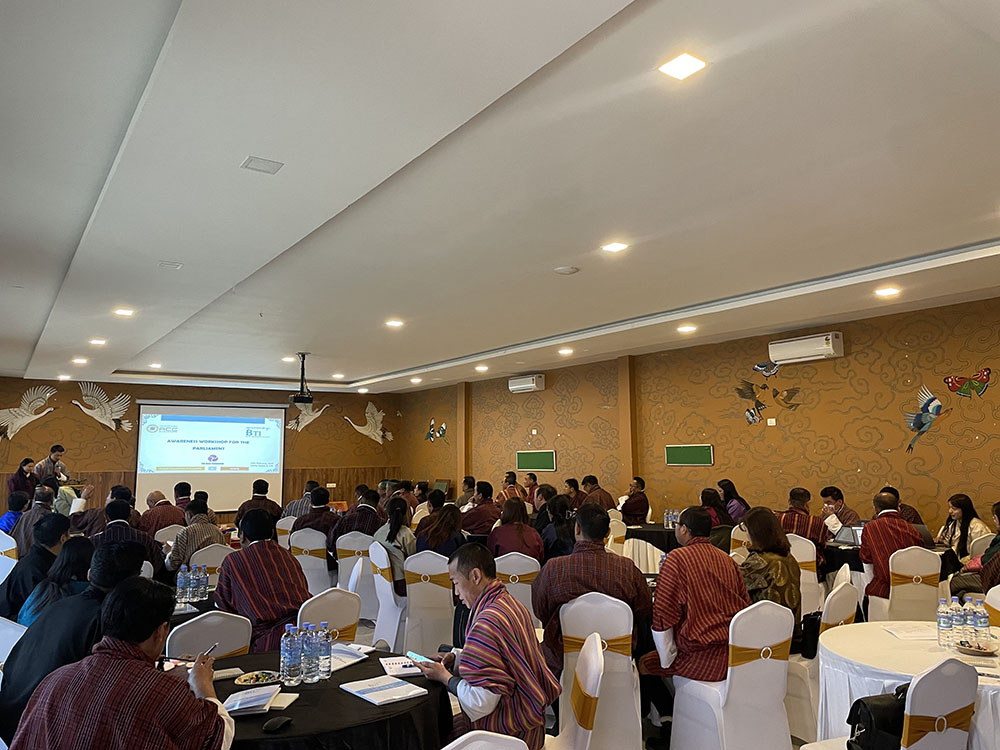Sherab Lhamo
Individuals who reported wrongdoing face retaliation, including job transfer, demotion, and even threats, revealing a yawning policy gap in protecting whistle-blowers in the country.
At the day-long workshop attended by parliamentarians, representatives of Civil Society Organisations (CSOs), Community-Based Organisations (CBOs), The PEMA, and the media entities, participants called a robust witness protection Act.
The workshop’s primary aim was to furnish parliamentarians with an overview of the findings from the 2023 National Corruption Barometer Survey, along with associated research, and engage in substantive discourse regarding the path forward.
Emphasising the need for a robust witness protection Act in the nation, Rinzin Rinzin, executive director of Bhutan Transparency Initiative, underscored the escalating trajectory of corruption. He said that potential whistleblowers are deterred from reporting corruption due to the risk of exposure, underscoring the imperative for comprehensive legislation safeguarding their anonymity.
Echoing this sentiment, Opposition Leader Dasho Pema Chewang pointed out gaps in the Anti-Corruption Commission’s (ACC) framework pertaining to informant protection.
While acknowledging the presence of mechanisms describing “what” is required, he stressed the indispensable necessity of elucidating “how” these protections are to be put in action, emphasising the pivotal role informants play in combating corruption.
Furthermore, a participant underscored a prevalent trend wherein internal organisations handle corruption allegations internally, only escalating to the commission once they are disclosed.
However, this transitional phase frequently exposes informants, leaving them vulnerable to reprisals.
The predicaments facing whistle-blowers were shown through anecdotes and investigative pieces published by Kuensel, recounting instances where individuals disclosing misconduct endured punitive measures such as job reassignment, demotion, and even threats, magnifying the urgency for comprehensive whistle-blower safeguards.
During the workshop, an overwhelming ninety percent of attendees advocated for the enactment of a witness protection Act, affirming unequivocally the imperative for legislative action in this realm.


